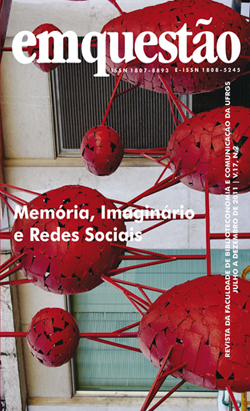Library, and the fight for class placement of librarianship Brazil: some considerations
Keywords:
Library. Class struggle. Brazilian Librarianship. Librarian. Information.Abstract
Addresses the identification process and performance of libraries considering the context of class struggle and the positioning of librarianship in relation to these two factors. As a condition of this work is problematical, the following questions: how the library has worked in their political, social, educational, cultural, educational and administrative? As the Library has been positioned on the performance of libraries and the conflict of class struggle? Analyzes the library on their own terms functional and institutional, its divisions in public and private, the procedure to identify and characterize a library effectively. Evaluates the behavior of the library regarding the class struggle, showing that the library has served as an ideological state apparatus (IEA) by reproducing information from the dominant ideology relegating the majority of the population to a lower plane. It also analyzes the positioning of librarianship Brazilian considering his three main exponents: the upper-level course, the professional classes and the organs of considering the possibility of extension projections of academic, political mobilization of the organs of class, to stimulate the professional develop a social activity based on the process of attracting non-users and put them in the library space by streamlining the collection with diverse activities that are beyond the use only of the book.Downloads
Downloads
Published
How to Cite
Issue
Section
License
Copyright (c) 2010 Jonathas Luiz Carvalho Silva, Roosewelt Lins Silva

This work is licensed under a Creative Commons Attribution 4.0 International License.
Authors who publish with this journal agree to the following terms:
Authors will keep their copyright and grant the journal with the right of first publication, the work licensed under License Creative Commons Attribution (CC BY 4.0), which allows for the sharing of work and the recognition of authorship.
Authors can take on additional contracts separately for non-exclusive distribution of the version of the work published in this journal, such as publishing in an institutional repository, acknowledging its initial publication in this journal.
The articles are open access and free. In accordance with the license, you must give appropriate credit, provide a link to the license, and indicate if changes were made. You may not apply legal terms or technological measures that legally restrict others from doing anything the license permits.









